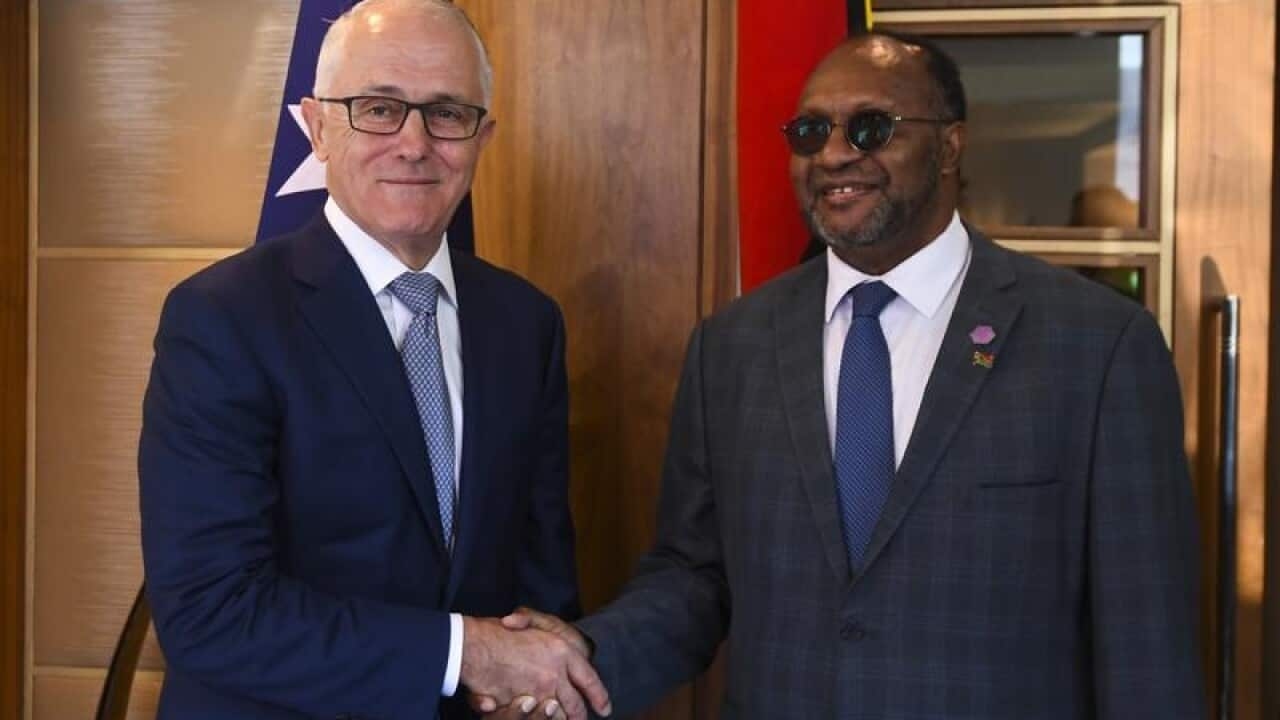Borrow a house deposit from mum and dad and you'll often get strings attached.
Here's $60,000 - but we want grandkids in five years.
Overseas aid is the same.
Australia doesn't just give out money to other countries for them to spend on whatever they want.
The cash comes with specific, often onerous, strings attached.
You're a struggling island nation? Here's $5 million to build new schools - but girls must be educated to the same level as boys.
Here's $3 million for new police equipment - but it has to come with mandatory anti-corruption training.
If that sounds paternalistic, it absolutely is.
But it is in Australia's interest to improve the civil society of our closest neighbours.
No one wants a failed state nearby, attracting fanatics, opening the door for other foreign powers to step in.
That's why Australia reacted so strongly to reports China plans to build a military base in Vanuatu.
China called the report "sheer fiction" from trouble-making Australians, while Vanuatu said it was "never dreaming" of allowing a military base on its shores.
But real or not, it has had a significant effect.
Malcolm Turnbull met his Vanuatu counterpart Charlot Salwai in London and heard his push for Australia to build a new police academy in the island nation.
Australia has also stepped in to build a new telecommunications cable to the Solomon Islands via Papua New Guinea.
It was originally going to built by Chinese firm Huawei. Australia will fund it instead.
"The joint project will be a first for Solomon Islands, which is wholly reliant on satellite technology to access the internet," Turnbull said in a statement.
The deal means Huawei doesn't get fibre optic access to Australia's internet backbone.
Foreign aid can be way for a rich country to encourage positive development in a poorer country.
It can also allow a regional power to ensure its neighbours don't let other powers gain a military advantage.
That all sounds straightforward, but Australia's foreign aid budget plummeted once Tony Abbott won power.
From spending $5.1 billion in 2012/13, that figure dropped to $3.8 billion just four years later.
It now sits at $3.9 billion, with 90 per cent of aid going to the Indo-Pacific region.
After years of slashed overseas aid budgets, it doesn't feel like a shock that close neighbours look to other foreign powers for help.
International Development Minister Concetta Fierravanti-Wells this week revealed just 10 per cent of Australians think the foreign aid budget should be increased.
She said there is a "clear link" between Australia's neighbours prospering and Australia prospering - but people don't seem to understand it.
"We need to do better in articulating that to the public in a way that is credible, targeted, and withstands public scrutiny," the senator said.
The problem is foreign aid is low-hanging fruit for protectionist types.
'Why are they spending money overseas when people don't have jobs here?'
It's an easy line, with a complex answer.
Aid agencies say Australians strongly support increasing foreign aid once they realise how little is spent on it.
Foreign Minister Julie Bishop said to wait for the budget to see if foreign aid will rise.
But the possibility of a Chinese base - whether real or imagined - just two hours flight from Brisbane has sharpened the debate.
A fighter jet could do that flight much faster, a missile even faster than that.
How much would Australia pay in the future to ensure it controls the shipping and flight paths in and out of the eastern seaboard?
Foreign aid can be a weird mix of protection money and sugar-coated strong-arming.
It can be hard sell when hospitals and schools need funding and power bills are rising.
But Canberra doesn't just have to look after mum and dad voters, it also has to make sure the nation is safe and defensible now and into the future.
Prevention is better than the cure, and a little bit of money can go a long way to keeping the region safe and making it more prosperous for everyone.
Strings attached, of course.

